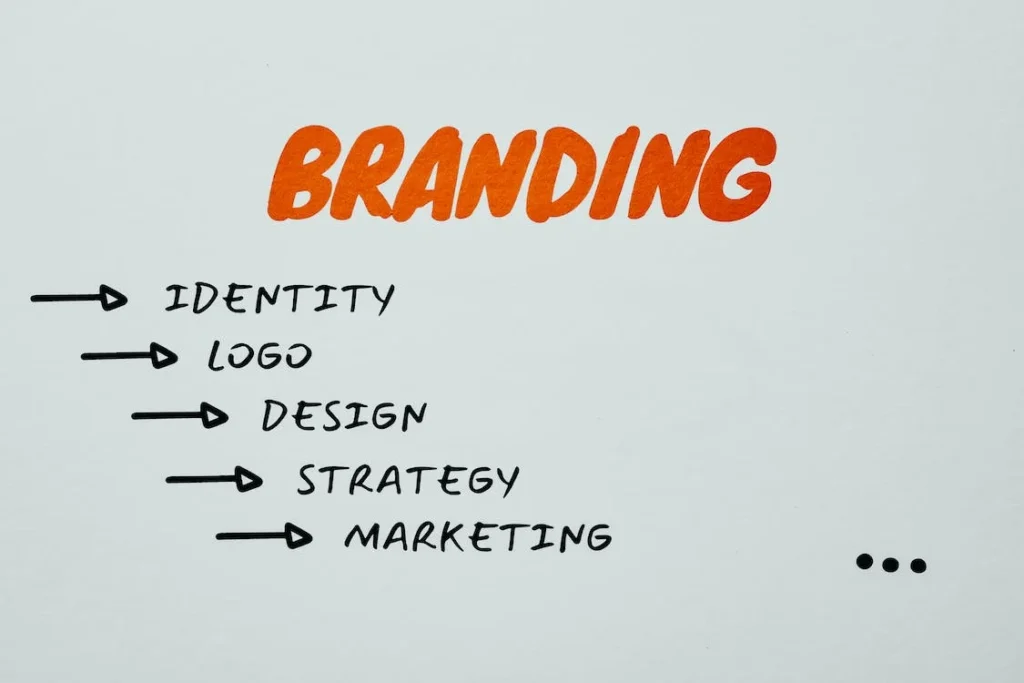Branding, at its core, is the art of storytelling. For centuries, human civilizations have thrived on stories — tales of heroes, legends of love, and sagas of discovery that shape our worldview and our identity. Fast-forward to today, and we see the entertainment industry – movies, music, TV shows, theatre, and more – setting the stage for some of the most captivating stories ever told. But what truly sets one story apart from another? What makes ‘Star Wars’ different from another space opera, or Adele stand out in the world of soulful ballads? The answer, often, is branding.
In today’s saturated media environment, it’s not enough to merely tell a story; it needs a unique voice, a recognizable tone, and a consistent narrative. This is where branding comes into play. Just as businesses need branding to carve out a niche in a crowded marketplace, the entertainment sector requires robust branding strategies to craft memorable experiences that resonate with audiences.
The Essence of Branding in Entertainment
The Evolution of Entertainment Branding
Remember the days when all we had were a few TV channels? The star actors and musicians of yesteryears enjoyed an almost exclusive spotlight. Now, with platforms like Netflix, Spotify, and YouTube, there’s a veritable flood of content. In this deluge, branding becomes the lifeboat that ensures your content doesn’t sink into oblivion. In the past, sheer talent was enough. Today, while talent remains paramount, the brand around that talent — the image, the message, and the emotion it evokes — is equally crucial.
Why Branding Matters
Entertainment is more than just consumption; it’s an experience. When someone watches a film, listens to a song, or attends a concert, they’re immersing themselves in a story. The brand behind this story determines its relatability, credibility, and appeal. Consider the Marvel Cinematic Universe (MCU). It’s not just about superheroes; it’s about a particular kind of storytelling, humor, and character development that fans have come to expect and love. That’s the power of branding.
Branding Basics for the Entertainment Industry
Understand Your Audience
Every good brand strategy starts with understanding its audience. Who are they? What are their likes, dislikes, habits, and preferences? Dive deep into demographics, but also consider psychographics. This understanding will guide your branding decisions.
Craft a Unique Voice
In a world of covers and remakes, originality shines brightest. Your brand’s voice should be an authentic reflection of what you represent, be it rebellious, soulful, quirky, or anything in between.
Consistency is Key
Whether it’s a logo, color scheme, tone of voice, or type of content, consistency helps in building brand recall. Think of Disney. From their theme parks to their movies, there’s a consistent feel of magic and wonder.
Creating Memorable Experiences: A Tactical Guide
Immersive Storytelling
The most memorable brands in entertainment don’t just tell stories; they create universes. These universes captivate the audience, inviting them to dive deep, explore more, and genuinely feel a part of something bigger. Be it the world of Harry Potter or the realm of Game of Thrones, these branded universes linger long after the show ends.
Harnessing Technology
Virtual reality, augmented reality, and 4D experiences are revolutionizing how stories are consumed. By integrating these technologies, brands can offer a unique experience, setting themselves apart from the competition.
Engaging with Fans
In the age of social media, fans want to be a part of the conversation. They don’t want to be passive consumers but active participants. Host Q&A sessions, create polls, or even invite fan theories. Making your audience feel involved strengthens brand loyalty.
Leveraging Merchandise and Ancillaries
Beyond the Primary Product
While a movie or a music album might be the primary product, the world of branding doesn’t stop there. Think of ‘Baby Yoda’ toys or ‘Harry Potter’ wands. Such merchandise becomes an extension of the brand, providing fans with tangible pieces of their favorite stories.
Strategic Collaborations
Collaborations with complementary brands can amplify reach and provide unique offerings. For instance, when movies collaborate with fast-food chains to introduce themed meals or toys, it creates a buzz, and fans rush to collect them all.
Exclusivity and Limited Editions
The allure of owning something rare can be a strong pull. Launching limited edition merchandise or special vinyl records can create anticipation and hype, driving both demand and brand value.
Building Authenticity and Trust
Staying True to Roots
While it’s tempting to chase trends, brands that stay true to their essence tend to fare better in the long run. Take the case of musicians like Bob Dylan or brands like Studio Ghibli. Despite the changing landscape, they’ve maintained their unique voice, garnering respect and loyalty from fans.
Transparency and Openness
With the advent of social media, the distance between stars and fans has diminished. Regular updates, behind-the-scenes glimpses, and addressing issues head-on can build a bond of trust.
Handling Missteps Gracefully
No brand is perfect. Mistakes will happen. How you address them can either break or solidify your brand’s reputation. Apologizing when wrong and showing genuine efforts to rectify can go a long way.
Measuring Brand Success in the Entertainment Sector
Beyond Box Office Collections and Streaming Numbers
While revenue is a clear indicator, the success of an entertainment brand is multifaceted. Engagements, fan theories, merchandise sales, and even fan art can be indicators of a brand’s resonance with its audience.
Feedback and Reviews
Living in the digital age, reviews are everywhere – be it on Rotten Tomatoes, IMDb, or Twitter. While not every review needs a reaction, understanding the general sentiment can provide insights into areas of improvement.
Brand Extensions
When a brand expands into newer territories – like movies becoming TV series, or musicians launching fashion lines – it’s often a sign of a strong and recognized brand.
Future of Branding in Entertainment: A Glimpse Ahead
Personalized Experiences
With advancements in AI and data analytics, the future might see even more personalized branding experiences. Imagine movie trailers tailored to individual preferences or albums that adapt according to your mood.
Sustainability and Social Responsibility
Modern audiences are conscious consumers. Brands that integrate sustainability or social causes not just in their messaging but also in their actions will strike a chord with the newer generations.
Blurring of Realities
As virtual and augmented realities evolve, the line between fiction and reality will blur. Brands can harness this to create truly immersive narratives, where fans might walk alongside their favorite characters or attend virtual concerts that feel like the real deal.

Related: Check out our free SEO suite

Challenges in Entertainment Branding
Over-saturation of Content
In the age of the internet, everyone can be a creator. This democratization, while empowering, poses a challenge. How does one stand out amidst countless others? Effective branding is the differentiator.
Changing Audience Preferences
What was popular a year ago might not be in vogue now. The challenge lies in anticipating these shifts and molding the brand without losing its core essence.
Negative Publicity
The line “All publicity is good publicity” doesn’t always hold. A slip, a tweet, or an offhand comment can spiral into PR nightmares. Managing these while ensuring the brand’s integrity remains intact is a constant challenge.
Branding Takeaways for Aspiring Entertainers
Start With ‘Why?’
Before any branding endeavor, ask yourself, “Why am I doing this? What’s my unique story?” This clarity will guide all subsequent branding efforts.
Engage, Don’t Broadcast
The era of one-way communication is over. Engage with your audience, understand their feedback, and involve them in your journey. This not only strengthens your brand but can offer invaluable insights.
Stay Updated but Be Timeless
While it’s essential to stay updated with the latest trends and technologies, ensure your brand has timeless elements. This balance ensures relevancy while also providing longevity.
The Role of Social Media in Entertainment Branding
Social media has revolutionized the way we consume and interact with entertainment. It has bridged the gap between stars and fans, made content more accessible, and created new platforms for storytelling. Here’s a deep dive into how social media plays a pivotal role in entertainment branding.
Instant Feedback Loop
Gone are the days when creators had to wait for box office results or album sales to gauge audience reactions. Now, within minutes of a release, Twitter trends, Instagram stories, and TikTok challenges provide instant feedback. This immediacy helps brands adjust their strategies in real-time.
Micro-Moments & Virality
A catchy tune, a memorable dialogue, or a hilarious scene can become viral on social media within hours. These ‘micro-moments’ can be leveraged by entertainment brands to boost their popularity. A classic example is the “Baby Shark” phenomenon. What started as a simple song spiraled into a global sensation, thanks to its virality on platforms like YouTube.
Influencer Collaborations
Social media influencers, with their massive followings and niche audiences, can be potent allies for entertainment brands. Collaborating with influencers can lead to increased visibility and a fresh audience base. For instance, musicians often team up with popular TikTokers to promote their new tracks.
The Impact of User-Generated Content (UGC) on Branding
User-generated content, from fan art to cover versions to fanfiction, plays a significant role in the world of entertainment branding. It’s a testament to a brand’s impact and its ability to inspire creativity among fans.
UGC as a Brand Amplifier
When fans invest their time and creativity to produce content related to a brand, it amplifies the brand’s reach. This content acts as organic marketing, often reaching audiences that official campaigns might miss.
Building a Community
UGC fosters a sense of community. Fans unite over shared passions, discuss nuances, and even defend the brand against criticisms. Platforms like Reddit have entire communities dedicated to movies, shows, or artists, showcasing the power of UGC in building brand loyalty.
Challenges and Copyright Concerns
While UGC can be beneficial, it poses challenges, primarily concerning copyrights. Brands must find a balance between encouraging fan content and protecting their intellectual properties.
Experiential Marketing in the Entertainment Industry
Moving beyond traditional advertising, experiential marketing offers audiences a chance to ‘experience’ the brand, creating memorable, immersive interactions.
Pop-Up Events & Installations
Be it the ‘Friends’ Central Perk cafe pop-up or the ‘Game of Thrones’ themed escape rooms, these real-world installations allow fans to live a part of their favorite shows or movies, creating buzz and deepening brand engagement.
Virtual Reality (VR) & Augmented Reality (AR) Experiences
VR and AR are reshaping experiential marketing. Fans can now don VR headsets to enter the world of ‘Star Wars’ or use AR apps on their phones to interact with characters from their favorite shows.
Interactive Premieres & Launches
Making premieres and launches interactive, where fans can participate, ask questions, or even influence outcomes, adds a new dimension to branding. It makes audiences feel involved and valued, strengthening their bond with the brand.
Concluding Thoughts
In the grand theater of the entertainment industry, branding acts as the director, ensuring every element, from the main acts to the background scores, harmoniously aligns to create a masterpiece. From leveraging social media and embracing UGC, to delving into experiential marketing, modern entertainment branding isn’t just about crafting a logo or a catchy jingle. It’s about understanding audiences, anticipating trends, and, most importantly, telling stories that leave an indelible mark.
As we stand on the cusp of new technological advances and as audience preferences continue to evolve, the art and science of branding will undeniably undergo transformations. However, its core essence will remain: creating and nurturing a bond between the storyteller and the audience.
READ NEXT:
- 10X Your Digital Marketing Now! Skyrocket Your Leads in 30 Days
- Lead Generation for B2B – In 12 Steps (Use this Strategy Now!)
- How to Magnetize Investment Buffs to Your Site with Proven SEO Tactics
- How to Create a Social Media Marketing Plan: The Complete Guide
- Important FEMA Provisions governing Foreign Exchange Control in India





















Comments are closed.